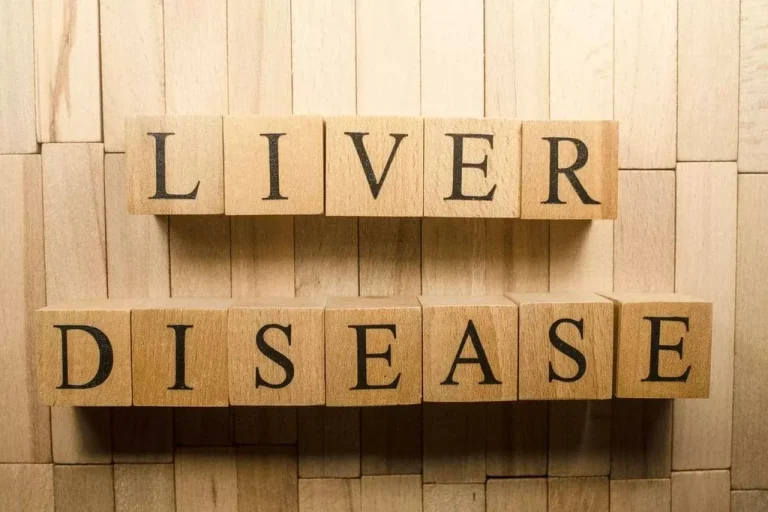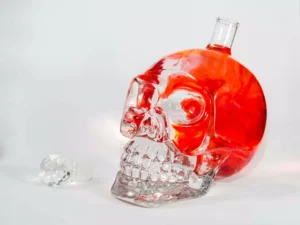
Set aside 30 minutes before retiring to engage in a wind-down routine, such as taking a warm bath or meditating. If possible, be consistent with the time you go to bed and what time you get up in the morning. This will cause your brain to automatically begin to wind down near bedtime. There are a number of things you can do to help reduce stress levels. If you are experiencing any of these symptoms, it is essential to speak to a medical professional.
Dual Diagnosis 101: How Mental Health Disorders and Substance Use Disorder Often go Hand in Hand
- That’s why it’s important to eat nutritious meals, especially if you’re struggling with brain fog.
- This decrease in brain activity not only affects us while we’re drinking, but it can result in brain fog the next day.
- Avoiding alcohol is the best way to treat these conditions and relieve symptoms.
- This can reduce how much serotonin (a chemical messenger) your body produces, which can impact cognitive function and lead to symptoms of brain fog.
Meal delivery services can also be a good option if you don’t have time to cook healthy meals. Alcohol can disrupt sleep, so it’s important to get plenty of rest after drinking. Brain fog or mental fog is a term used to describe the feeling of mental confusion or cloudiness. alcohol brain fog So even though you may have spent years working to destroybrain cells, your brain can still heal, so long as it’s given the opportunityto do so. It can make it difficult for you to focus on tasks at hand, remember things, or pay attention to what’s going on around you.
Staying Healthy

Scar tissue impairs the liver’s ability to create proteins, filter the blood, and other bodily functions. Conversely, other recent data suggest a lower risk for dementia in people consuming a few alcoholic beverages a day. This includes a 2022 study showing that in around 27,000 people, consuming up to 40 grams of alcohol (around 2.5 drinks) a day was linked to a lower risk for dementia versus abstinence in adults over age 60. A much larger study of almost 4 million people in Korea noted that mild to moderate alcohol consumption was linked to a lower risk for dementia compared to non-drinking. Brain fog is that fuzzy, forgetful feeling that can happen for various reasons. Knowing the cause of your symptoms can help determine if you need specific treatment or lifestyle and medication adjustments to help with brain fog.

Sleep Your Way to Clarity: Natural Brain Fog Remedy
- This can make it difficult to concentrate, remember names, or focus, and you may feel mentally fatigued.
- Completely avoiding alcohol and eating a balanced diet can help minimize damage.
- By 5 years, all other cognitive functions have returned to anormal level state.
- Others may have a hard time sticking to this limit due to genetics, stress, and other risk factors.
- The more prolonged and heavier the alcohol use, the greater the probability that the brain fog will remain for a longer time.
- But according to the Centers for Disease Control and Prevention (CDC), drinking less or not at all may help you avoid neurological harm.
- The researchers noted that men who had more than 2.5 drinks per day showed signs of cognitive decline up to six years earlier than those who did not drink, quit drinking, or were light-to-moderate drinkers.
It’s found in a wide range of alcoholic beverages including beer, wine, and spirits like vodka, whiskey, rum, and gin. This article will dive deeper into what brain fog is, how it’s related to alcohol, what the symptoms of it are, and much more. Experiencing brain fog following addiction can be a frustrating experience, but hang in there.
For instance, depression can lead to a lack of sleep or vice versa. It is not unusual for brain fog to be caused by a combination of two or three of these factors since they often go hand in hand. If you’re a professional working with people with the condition, download our Quick Guide for Professionals. Eventually I was diagnosed with Cerebellar Disease https://ecosoberhouse.com/ after a severe B12 deficiency, and was told the extent of my recovery would depend on the length of time this had been going on. I still go to physiotherapy now, but only I know what’s happened to me.” In other cases, such as Wernicke-Korsakoff’s Syndrome, or after a severe brain injury, the symptoms will appear suddenly and may be quite severe.

Given alcohol’s short- and long-term effects on the brain, it’s perhaps unsurprising to learn that we can get that lethargic, dull mental state we refer to as brain fog after drinking. In fact, one study found that hangovers have a negative effect on cognitive functions, including visual, memory, and intellectual processes. Another study noted that people are generally less alert when they’re hungover. Alcohol brain fog refers to a range of cognitive impairments that occur during alcohol consumption or in the aftermath.
Wernicke-Korsakoff Syndrome: Signs, Effects, and Treatment
- So, if you’re struggling with alcohol brain fog, try to do some yoga.
- Brain stimulation can modulate neural activity in specific regions involved in intuitive reasoning, potentially enhancing our capacities.
- But that’s not all — a 2021 study suggests it can also distract us from upsetting thoughts and a 2017 study notes that it can aid in emotional regulation after a stressful event.
- Therefore, it’s important to make getting quality sleep a priority to avoid more brain drain.
The Reframe app equips you with the knowledge and skills you need to not only survive drinking less, but to thrive while you navigate the journey. Our daily research-backed readings teach you the neuroscience of alcohol, and our in-app Toolkit provides the resources and activities you need to navigate each challenge. There are several popular apps for a brain workout, including Fit Brain, which features exercises that target emotional intelligence and self-awareness. Cut yourself off from caffeine by six hours before bedtime, and drink plenty of water and other hydrating beverages.

Get the latest in health news delivered to your inbox!
They may not be able to form short-term memories because they are confused or thinking about other things. By harnessing technology and incorporating targeted interventions, we can enhance the brain’s natural intuitive functions, leading to improved attention, decision-making, and overall well-being. Emerging technologies like neurofeedback and brain stimulation can further enhance intuitive abilities. Neurofeedback trains individuals to alter brain activity patterns, leading to improvements in attention and decision-making.
Experts say the first approach to getting rid of brain fog includes looking at lifestyle factors such as nutrition, sleep, and exercise. Brain fog is a term used to describe cognitive difficulties, such as trouble with focus, memory, and thinking. It’s often characterized by confusion, forgetfulness, or a lack of mental clarity. Just like a plant needs water and sunlight to grow, your brain needs proper nutrition and hydration to function optimally and maintain healthy brain cells. Eating a balanced diet and staying hydrated are essential for maintaining brain health and keeping brain fog at bay.
The precise symptoms of alcohol-related brain damage depend on a person’s overall health, how much they drink, and how well their liver functions, among other factors. Let a healthcare provider know if you experience brain fog, especially if it’s disruptive to your daily activities and routine. You might want to talk to a provider if you frequently forget about appointments, have trouble completing ordinary tasks or find it difficult to pay attention when someone’s talking to you. Brain fog is common, and a provider can help you find out what’s causing your symptoms.
